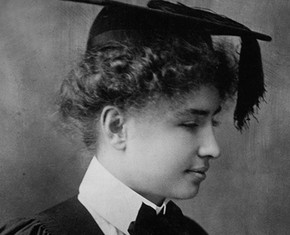The views expressed in our content reflect individual perspectives and do not represent the authoritative views of the Baha'i Faith.
On the Twelfth Day of Ridvan, the time for Baha’u’llah’s departure and exile from Baghdad finally arrived. For most, exile would have been a disgrace – but for Baha’u’llah, it represented victory.
Cast out of the city by government decree, because the Baha’i Faith had continued its rapid spread among the people of the Ottoman Empire, Baha’u’llah and his family faced a perilous, grueling four-month journey through the hottest months of the year to an unknown destiny.
That morning Baha’u’llah and his retinue of family and followers crossed the Tigris River onto the mainland. At noon on the twelfth day of Ridvan, Baha’u’llah mounted his horse, a noble red roan stallion. Immediately surrounded by people begging for his blessings and imploring him not to leave them behind, he set out northwest toward the Black Sea and Constantinople, clothed in majesty.
RELATED: Honoring the Birth of Baha’u’llah
The historian Nabil, an eyewitness to Baha’u’llah’s departure that day, described the wrenching scene:
Numerous were the heads which, on every side, bowed to the dust at the feet of His horse, and kissed its hoofs, and countless were those who pressed forward to embrace His stirrups.
One of Baha’u’llah’s followers, named Mirza Asadu’llah Kashani, could not help himself and ran after the group:
Although Baha’u’llah had commanded the friends not to follow them, I was so loath to let Him go out of my sight, that I ran after them for three hours.
He saw me, and getting down from His horse, waited for me, telling me with His beautiful voice, full of love and kindness, to go back to Baghdad, and with the friends, to set about our work, not slothfully, but with energy:
Be not overcome with sorrow – I am leaving friends I love in Baghdad. I will surely send to them tidings of our welfare. Be steadfast in your service to God, who doeth whatsoever He willeth. Live in such peace as will be permitted to you.
We watched them disappear into the darkness with sinking hearts, for their enemies were powerful and cruel! And we knew not where they were being taken. An unknown destination!
Weeping bitterly, we turned our faces toward Baghdad, determined to live according to His command.
A later interview with Baha’u’llah’s daughter Bahiyyih Khanum revealed that their group grew to approximately 75 people, with a company of soldiers alongside the exiles:
Many of [Baha’u’llah’s] followers decided to abandon Baghdad also, and accompany him in his wanderings. When the caravan started, our company numbered about seventy-five persons. All the young men, and others who could ride, were mounted on horses. The women and [Baha’u’llah] were furnished wagons. We were accompanied by a military escort.
Baha’u’llah’s second exile began on that day. Two more successive banishments would follow, the final one to the pestilential prison-city of Akka in Palestine, where few survived the terrible conditions of confinement. These cruel exiles, driven by rulers who feared the rapid spread of Baha’u’llah’s teachings, did not suppress or damage the Baha’i Faith – instead, Shoghi Effendi wrote in God Passes By, they recognized its power and rendered it victorious:
Acclaiming that historic occasion as the “Most Great Festival,” the “King of Festivals,” the “Festival of God,” [Baha’u’llah] has … characterized it as the Day whereon “all created things were immersed in the sea of purification,” whilst in one of His specific Tablets, He has referred to it as the Day whereon “the breezes of forgiveness were wafted over the entire creation.” “Rejoice, with exceeding gladness, O people of Baha!”, He, in another Tablet, has written, “as ye call to remembrance the Day of supreme felicity, the Day whereon the Tongue of the Ancient of Days hath spoken, as He departed from His House proceeding to the Spot from which He shed upon the whole of creation the splendors of His Name, the All-Merciful …
RELATED: What’s a Covenant, and Why Do Baha’is Have One?
Now the 12-day Ridvan period each year serves as the time when Baha’is around the world elect the democratic institutions that administer and guide their Faith. Baha’is have no clergy, so Baha’i communities govern themselves with democratically-elected bodies of nine people called Spiritual Assemblies, annually elected at the local and national level during the twelve days of Ridvan. Every five years, Baha’is elect the global Universal House of Justice during this same period.
Baha’u’llah’s victorious departure for Constantinople on the 12th Day of Ridvan provides fitting symbolism for Baha’is who annually gather to pray and silently cast their ballots for these unique democratic institutions. When they elect their administrative leadership in an atmosphere of spirituality and reverence, they affirm Baha’u’llah’s teachings of world unity; symbolically celebrate the garden of humanity in all its diversity and beauty; and recall his powerful declaration in the Garden of Ridvan, which established the Faith of oneness and peace.
















Comments
Sign in or create an account
Continue with Googleor